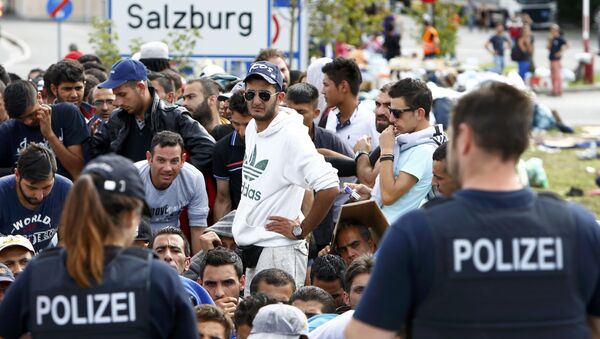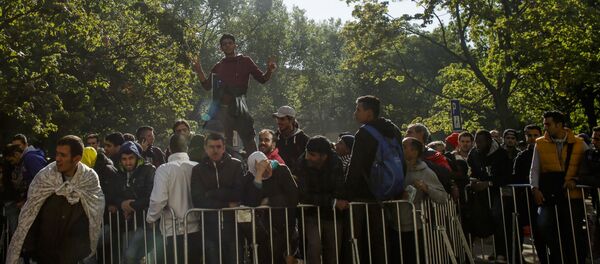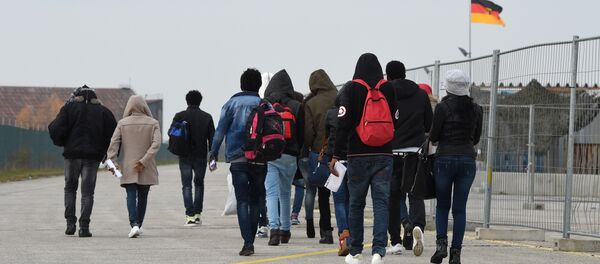The Federal Office of Migration and Refugees (BAMF) currently has the power to collect data without a warrant, but only with the consent of the phone's owner. Some 150,000-160,000 asylum seekers would be eligible for no-warrant phone searches, according to the Interior Ministry.
"We need to establish the identities of the applicants," said Volker Bouffier, minister-president of the state of Hesse. "To eliminate any doubts of a person's origin, we need to use all information available."
Anis Amri, a Daesh terrorist who killed 12 and injured 56 by driving a truck into a Berlin Christmas market, reportedly hid behind 14 different identities. False identities make deportation a bureaucratic nightmare, as Amri was to be deported to his native Tunisia, but Tunisian authorities refused because a false identity claimed that he was not a Tunisian citizen.
Many refugees are trapped in deportation limbo. Foreign registries estimate about 213,000 are on Germany's deportation list.
BAMF has a backlog of some 430,000 asylum applications waiting for processing, and is having difficulty confirming refugee identities. A BAMF spokesman said that asylum seekers frequently provide fake information to avoid deportation or gain additional social benefits.
For instance, in February a 25-year-old refugee in Hannover was found guilty of fraud for having used seven identities to obtain social benefits. The man was sentenced to 21 months in prison and 200 hours of community service.
To better handle the tide of refugees, the Interior Ministry granted BAMF emergency powers, such as the aforementioned no-warrant cell phone searches in 2015. In February 2017, BAMF also began fingerprinting all asylum seekers.
The 2015 cell phone amendment drew criticism from German parliamentarians who said it could "harm the inviolable core principle of private life."
Since the Christmas attack, German authorities continue to levy tougher security measures against refugees. A federal court ruled on Monday that Syrian refugees do not have an automatic right to asylum in Germany, as they have enjoyed in the past.
Germany has also begun to deport more, and accept less refugees. Some 80,000 were deported in 2016, and 270,000 applications were rejected.
The proposal for the cell-phone-search law must first be approved by the Interior Minister, then presented to parliament. Details remain undisclosed, as the law is not yet fully drafted.




